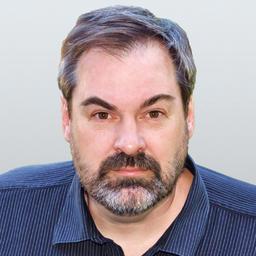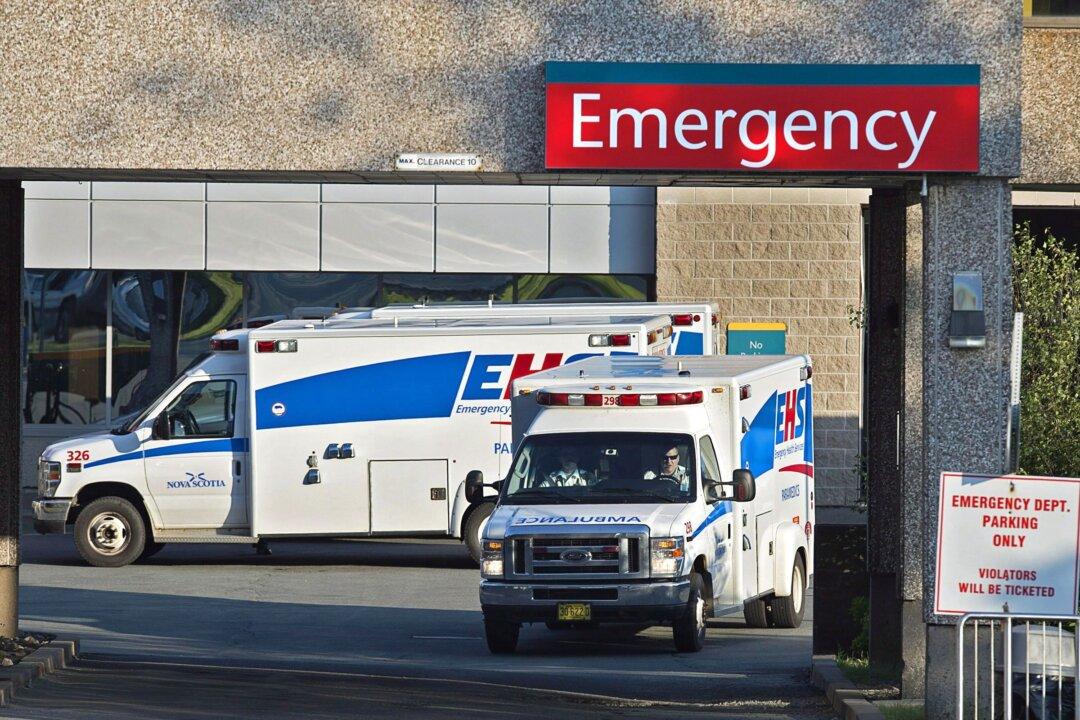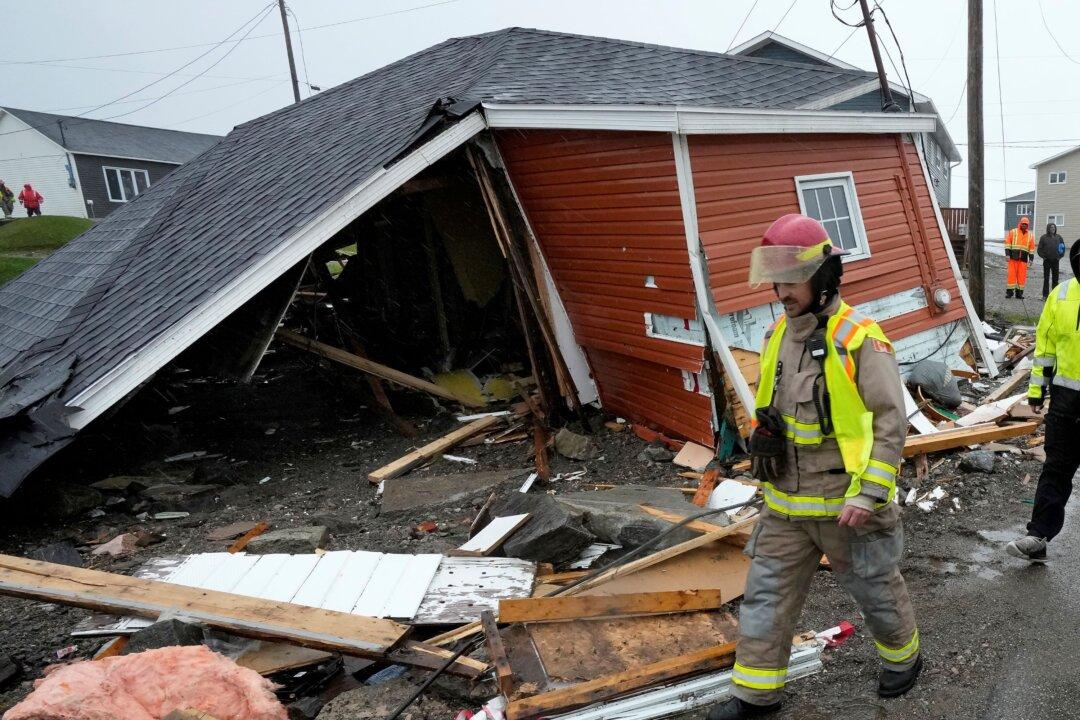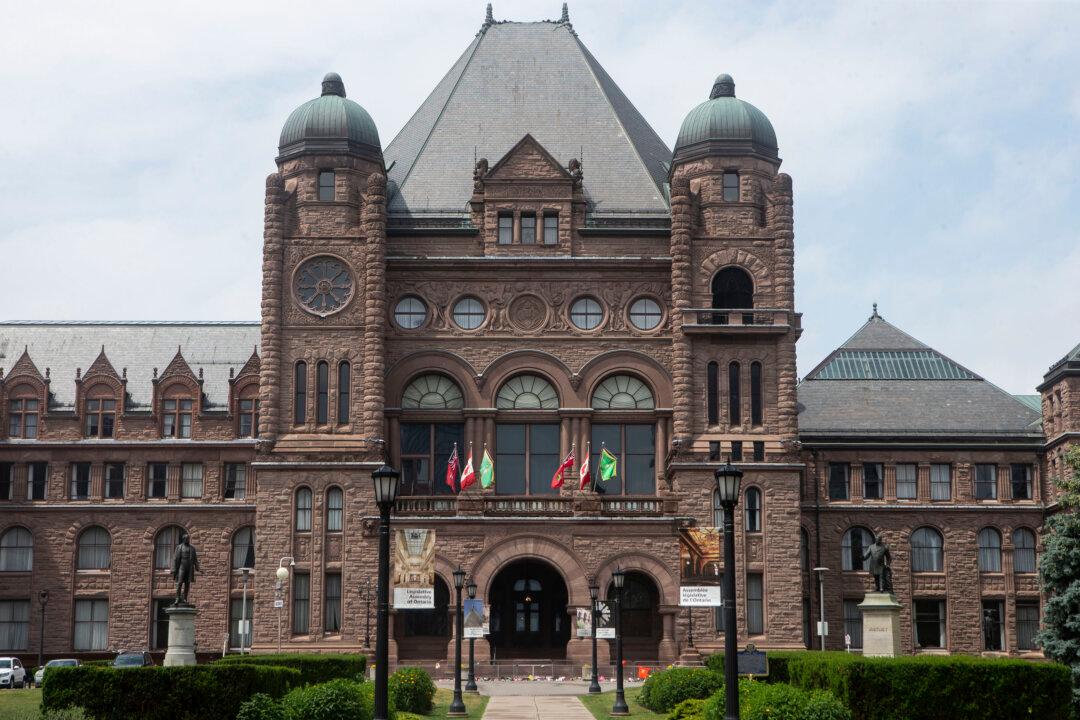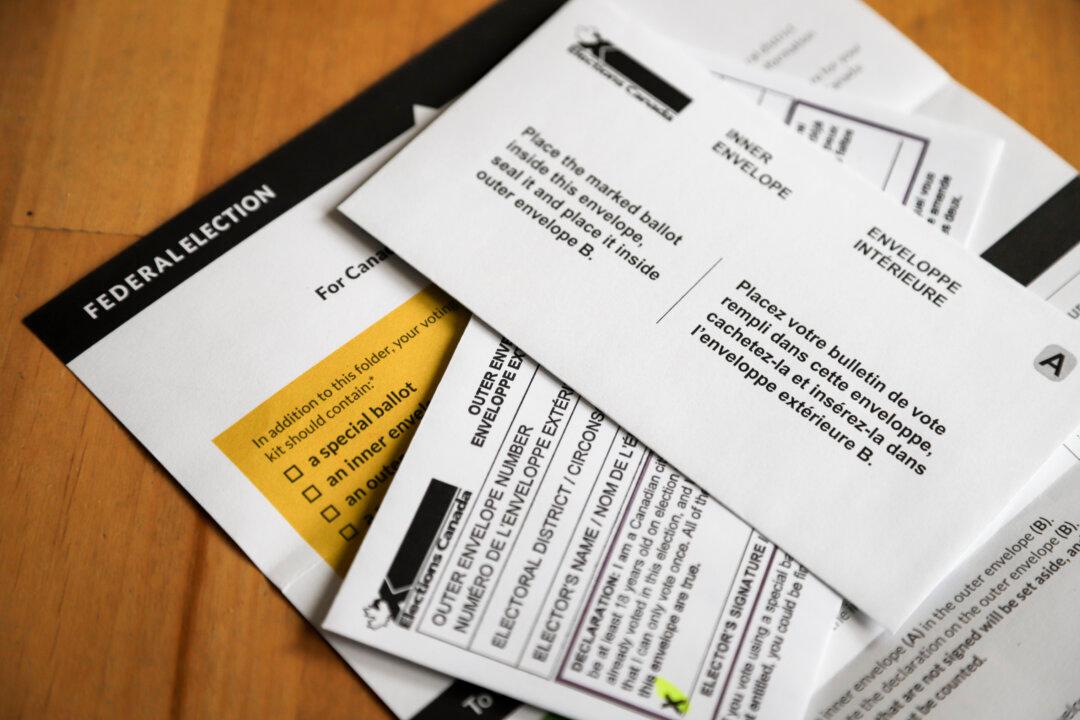Police officers and firefighters stood in silent protest against mandatory COVID-19 vaccinations in front of Calgary City Hall on Sept. 7—and they’re planning to do it again on Sept. 12.
Police Officers, Firefighters Make Silent Stand Against Mandatory COVID Vaccination in Calgary
Protest held ahead of wave of nationwide demonstrations
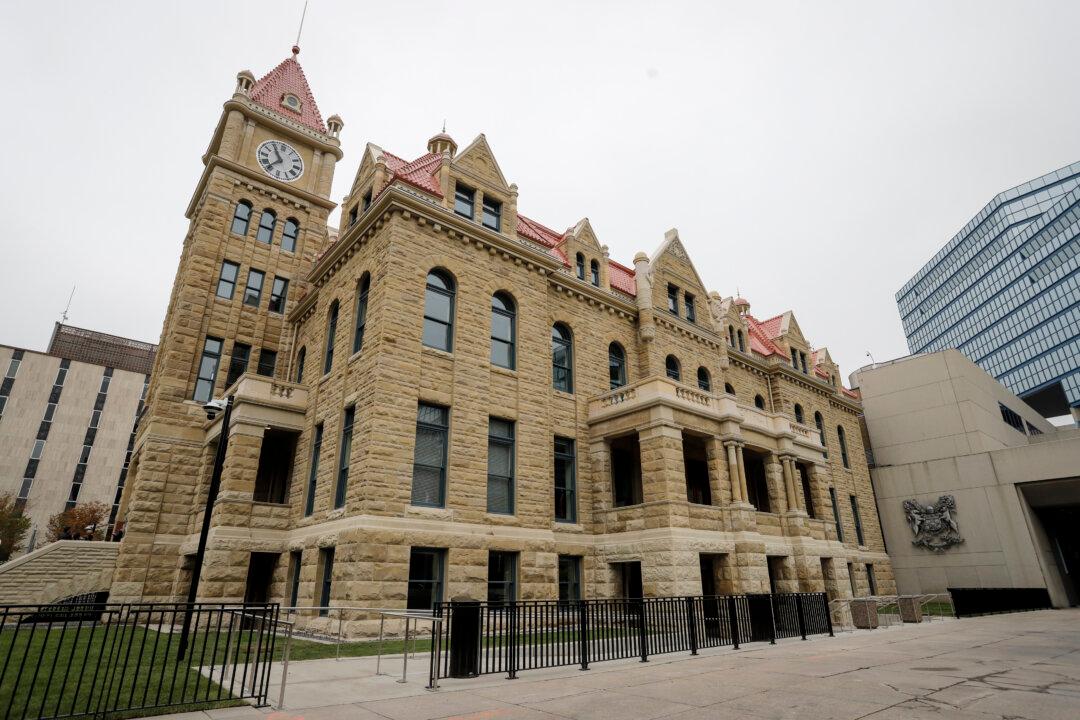
Calgary City Hall in a file photo. Jeff McIntosh/The Canadian Press
|Updated:
